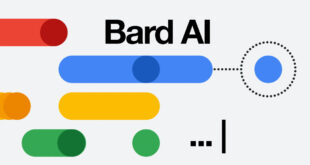In a new study, published this week in the journal iScience, a team of researchers showed that Brazil reef octopuses (Octopus insularis) have two different quiescence states that fulfill the behavioral criteria for sleep, namely ‘quiet sleep’ and ‘active sleep.’
Brazil reef octopuses (Octopus insularis) have ‘quiet’ and ‘active sleep,’ with different episode duration and periodicity. Image credit: Medeiros et al., doi: 10.1016/j.isci.2021.102223.
Scientists used to think that only amniotes (mammals, birds, and reptiles) had two sleep states.
A REM-like sleep state was recently discovered in cuttlefish Sepia officinalis, a cephalopod relative of the octopus.
“That led us to wonder whether we might see evidence of two sleep states in octopuses, too,” said Dr. Sidarta Ribeiro, a researcher at the Brain Institute of the Federal University of Rio Grande do Norte.
“Octopuses have the most centralized nervous system of any invertebrate and are known to have a high learning capacity.”
To find out, Dr. Ribeiro and colleagues captured video recordings of Octopus insularis octopuses in the lab.
They found that during ‘quiet sleep’ the animals were still and quiet, with pale skin and eye pupils contracted to a slit.
During ‘active sleep,’ they animals dynamically changed their skin color and texture. They also moved their eyes while contracting their suckers and body with muscular twitches.
“What makes it more interesting is that this ‘active sleep’ mostly occurs after a long ‘quiet sleep’ — generally longer than 6 minutes — and that it has a characteristic periodicity,” Dr. Ribeiro said.
“The cycle would repeat at about 30- to 40-min intervals.”
To establish that these states indeed represented sleep, the researchers measured the octopuses’ arousal threshold using visual and tactile stimulation tests.
The results showed that in both ‘active’ and ‘quiet sleep’ states, the animals needed a strong stimulus to evoke a behavioral response in comparison with the alert state. In other words, they were sleeping.
“The alternation of sleep states observed in Octopus insularis seems quite similar to ours, despite the enormous evolutionary distance between cephalopods and vertebrates, with an early divergence of lineages around 500 million years ago,” said Sylvia Medeiros, a graduate student at the Brain Institute of the Federal University of Rio Grande do Norte.
“If in fact two different sleep states evolved twice independently in vertebrates and invertebrates, what are the essential evolutionary pressures shaping this physiological process?”
“The independent evolution in cephalopods of an ‘active sleep’ analogous to vertebrate REM sleep may reflect an emerging property common to centralized nervous systems that reach a certain complexity.”
The results also raise the possibility that octopuses experience something similar to dreaming.
“It is not possible to affirm that they are dreaming because they cannot tell us that, but our results suggest that during ‘active sleep’ the octopus might experience a state analogous to REM sleep, which is the state during which humans dream the most,” Medeiros said.
“If octopuses indeed dream, it is unlikely that they experience complex symbolic plots like we do.”
“‘Active sleep’ in the octopus has a very short duration — typically from a few seconds to one minute. If during this state there is any dreaming going on, it should be more like small videoclips, or even gifs.”
_____
Sylvia Lima de Souza Medeiros et al. Cyclic alternation of quiet and active sleep states in the octopus. iScience, published online March 25, 2021; doi: 10.1016/j.isci.2021.102223
 #Bizwhiznetwork.com Innovation ΛI |Technology News
#Bizwhiznetwork.com Innovation ΛI |Technology News




